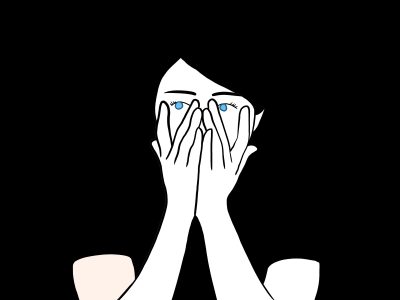Amidst the growing anti-women sentiment, specifically in U.S. society, TV dramas have introduced storylines to replicate the #MeToo Movement.
The original movement was started by Tarana Burke in 2006, and it was revitalized in 2017 after actress Alyssa Milano accused producer Harvey Weinstein of rape on Twitter. Burke acknowledged the arrest of Weinstein after several people accused him of rape and sexual assault, but said the purpose of the movement wasn’t to convict celebrities.
Rather, the Me Too Movement is meant to encourage marginalized survivors of abuse to dismantle the system of assault and thrive.
Burke’s mission carries through in the media.
Shows such as “Law and Order: SVU,” which dealt with sexual assault and abuse before the Me Too Movement became prevalent, discuss the aftermath of reporting any type of sexual trauma to the police, for example.
SVU has an episode that mirrors the Weinstein rape cases. In “I’m Going to Make You a Star,” a Weinstein-esque villain targets aspiring actresses. The show specifically focuses on the representation of survivors as opposed to assailants, according to showrunner Warren Leight.
Though depicting accurate abuse in the media is crucial, the stories of the survivors need to be captured more in-depth — SVU does just that. Addressing sexual assault requires us to teach people how to help survivors in addition to punishing abusers.

Showing these fictional SVU characters’ decision to come forward and pursue a case against their assailant is essential for the audience to learn how to better be an ally and gain a better understanding of the system.
Certain segments of SVU also discuss the concept of “he said, she said.” For example, in the 2004 episode titled “Doubt,” a college student claims a sexual act was rape while a professor says the act was consensual.
“Law and Order: SVU” is one of few shows that thoroughly depicts the experience of sexual assault victims. They are able to portray many sides of the conversation — with a range of survivors and perpetrators — in an unbiased and universal manner.
Throughout the show, the SVU investigators also provide the necessary compassion and empathy that is needed for police officers investigating sexual assault cases. Although there are moments when a detective may get enraged by the flimsiness in a victim’s testimony, they do not dismiss the claim itself.
We need members of the police or authority figures who believe and investigate accusations, especially when it is often difficult for the survivor to receive closure or even feel comfortable reporting their assault. Ignoring an accusation because the survivor isn’t “the ideal victim,” is an absolutely absurd notion that is impossible to achieve.
Unfortunately in real life, the backlogs of rape kits have grown mold, making them no longer viable, authorities fail to conduct complete interviews and police say victims were falsely claiming sexual assault. This can be discouraging to survivors who need support and justice.
While TV shows can only highlight the stigma surrounding rape and sexual assault cases, by showing fictional survivors who are believed and supported, they may encourage survivors to share their stories for themselves and others rather than for the police — similar to Burke’s movement that prioritized the power of survivors.
“Grey’s Anatomy” is another show that has succeeded in depicting the reality of sexual assault cases. The show introduced the idea of power dynamics in sexual harassment by depicting the head of a medical foundation as a man of authority targeting vulnerable and desperate women.
In season 14 of “Grey’s Anatomy,” Harper Avery — the man behind a large medical foundation — was exposed as an abuser. He preyed on his female employees, using his position of power to get away with certain sexual acts.
Presumably realistic men such as Avery have an extensive team of lawyers to force the survivors to sign non-disclosure agreements and gag orders to prevent them from speaking against their current or former employers. They essentially corner the victim into silence — if they stay silent, they’ll be able to keep their job or avoid the piles of legal fees.
The pattern of big business — and yes, the medical industry is a business — cowering behind their lawyers to avoid taking any form of responsibility is unfortunately normalized.
As a society, we must discuss power dynamics to further understand what bosses can and cannot do. Besides the obvious illegalities behind rape and other non-consensual behavior, employers can’t be allowed to abuse their power to make employees feel obligated or forced to comply. “Grey’s Anatomy” sparks this conversation and is especially relevant in highlighting the sexual assault history in the medical industry.
By using the extremely devoted following of “Grey’s Anatomy,” the show was able to create a plot that dealt with real world issues. The cult following that “Grey’s Anatomy” has amassed over the years will be introduced to the importance of the Me Too Movement.
Although the storyline should be explored more deeply, it was also provided a platform beyond just the one episode. The following episodes involving the aftermath of the allegations were essential to providing more voices to those who are typically silenced.
Unfortunately, we live in a world where some people use their power to get what they want, regardless of who they hurt in the process. If television shows continue to portray the truth behind the Me Too Movement and emphasize how important it is to speak out against abuse, then hopefully the stigma behind sexual assault will virtually disappear.



















































































































